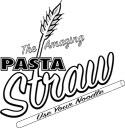Companies
Food Companies Finding Ways To Upcycle, Recycle For Profits, Sustainability
 The packaged-food industry, both CPG giants and start-ups concerned about sustainability, along with foodservice chains and providers of plastic packaging, are seeing the benefits of the so-called “circular economy.” By recycling and upcycling as much as they can, they are benefiting their bottom line and helping preserve the planet. Many companies are engaged in efforts to try to reduce food waste. About two dozen CPG manufacturers and food retailers are working with the EPA as U.S. Food and Waste 2030 Champions, setting a target to cut food waste in half by 2030. An increasing number of start-up manufacturers are using food-waste reduction as a primary platform. Barnanas, for example, has become a $15 million company in six years, selling banana “bites” in several varieties made from bananas that were a bit ripe.[Image Credit: © Barnana]
The packaged-food industry, both CPG giants and start-ups concerned about sustainability, along with foodservice chains and providers of plastic packaging, are seeing the benefits of the so-called “circular economy.” By recycling and upcycling as much as they can, they are benefiting their bottom line and helping preserve the planet. Many companies are engaged in efforts to try to reduce food waste. About two dozen CPG manufacturers and food retailers are working with the EPA as U.S. Food and Waste 2030 Champions, setting a target to cut food waste in half by 2030. An increasing number of start-up manufacturers are using food-waste reduction as a primary platform. Barnanas, for example, has become a $15 million company in six years, selling banana “bites” in several varieties made from bananas that were a bit ripe.[Image Credit: © Barnana]
New Program From L.A. Food Delivery Company Cuts Food Waste, Feeds The Homeless
 California food delivery service Postmates has launched a new endeavor: rescuing food before it is sent to landfills and taking it to where it will do the most good. The company’s drivers in Los Angeles are picking up leftover foodstuffs from local restaurants and delivering it to local homeless shelters. The FoodFight! program was incubated in the company’s social impact arm, Civic Labs, and launched in October. Participating restaurants simply touch a button to coordinate food pickup at the close of business. Four hundred restaurants in the L.A. area are eligible to make surplus food donations. The biggest problem for the program is a logistical one: shelter hours. Many shelters close for donations earlier than restaurants are finished serving, so the Civic Labs team is working on creative solutions, including additional funding for staffing.[Image Credit: © POSTMATES INC]
California food delivery service Postmates has launched a new endeavor: rescuing food before it is sent to landfills and taking it to where it will do the most good. The company’s drivers in Los Angeles are picking up leftover foodstuffs from local restaurants and delivering it to local homeless shelters. The FoodFight! program was incubated in the company’s social impact arm, Civic Labs, and launched in October. Participating restaurants simply touch a button to coordinate food pickup at the close of business. Four hundred restaurants in the L.A. area are eligible to make surplus food donations. The biggest problem for the program is a logistical one: shelter hours. Many shelters close for donations earlier than restaurants are finished serving, so the Civic Labs team is working on creative solutions, including additional funding for staffing.[Image Credit: © POSTMATES INC]
Corn Flakes To Beer: Kellogg U.K. Program Cuts Food Waste 12.5 Percent
 The U.K. unit of breakfast food company Kellogg is brewing a new business: beer. The company has launched a program, “Throw Away IPA,” that turns rejected corn flakes – too small, too big, undercooked – into beer, the revenues from which are partially donated to Fareshare, a food poverty charity. The English beer, made by Seven Bro7hers Brewery, tastes sweeter than the usual IPA, and has the iconic golden color of its breakfast cereal ingredients. Each Throw Away IPA brew uses roughly 132 pounds (60 kilograms) of rejected cornflakes. Since the program was launched, Kellogg says it has reduced its U.K.-based food waste by 12.5 percent.[Image Credit: © Seven Bro7hers Brewery]
The U.K. unit of breakfast food company Kellogg is brewing a new business: beer. The company has launched a program, “Throw Away IPA,” that turns rejected corn flakes – too small, too big, undercooked – into beer, the revenues from which are partially donated to Fareshare, a food poverty charity. The English beer, made by Seven Bro7hers Brewery, tastes sweeter than the usual IPA, and has the iconic golden color of its breakfast cereal ingredients. Each Throw Away IPA brew uses roughly 132 pounds (60 kilograms) of rejected cornflakes. Since the program was launched, Kellogg says it has reduced its U.K.-based food waste by 12.5 percent.[Image Credit: © Seven Bro7hers Brewery]
Hospitality Industry Can Play A Major Role In Reducing Food Waste
 American consumers looking to escape the bad news that bombards them daily are visiting hotels and restaurants and supporting CPG brands that are doing the right thing. Hospitality industry trend-watcher Andrew Freedman notes that the hospitality industry should be supporting good causes, like reducing food waste. Freedman says the movement to reduce food waste will continue to gain traction in 2019 as local governments start to restrict restaurants from disposing of food waste in landfills, prompting them to look for new solutions. Some hotels and restaurants are teaming with nonprofits and companies like Goodr Co. to redirect leftovers to those who are food insecure. Others are using food in unexpected ways to reduce waste, such as the Amazing Pasta Straw, which makes straws out of pasta.[Image Credit: © The Amazing Pasta Straw, LLC]
American consumers looking to escape the bad news that bombards them daily are visiting hotels and restaurants and supporting CPG brands that are doing the right thing. Hospitality industry trend-watcher Andrew Freedman notes that the hospitality industry should be supporting good causes, like reducing food waste. Freedman says the movement to reduce food waste will continue to gain traction in 2019 as local governments start to restrict restaurants from disposing of food waste in landfills, prompting them to look for new solutions. Some hotels and restaurants are teaming with nonprofits and companies like Goodr Co. to redirect leftovers to those who are food insecure. Others are using food in unexpected ways to reduce waste, such as the Amazing Pasta Straw, which makes straws out of pasta.[Image Credit: © The Amazing Pasta Straw, LLC]
New Clearer Use-By Labels Now On Nine Of Ten Foods
 The Grocery Manufacturers Association says ninety percent of food products now have easier-to-understand labels featuring use-by dates. The food industry launched an initiative to streamline labels in February 2017 because of confusion over expiration dates. The adage “when in doubt, throw it out" was causing tremendous food waste – in part due to unclear date labeling. Two labels – Best If Used By and Use By – were created and are now in use by 87 percent of grocery products. The association projects that 98 percent will bear the simplified labeling by the end of 2019; all will carry the labels – along with the FDA’s new Nutrition Facts panel – by January 2020. “Date labeling is a step toward meaningful food waste reduction," a GMA spokesman said,[Image Credit: © monicore fromPixabay]
The Grocery Manufacturers Association says ninety percent of food products now have easier-to-understand labels featuring use-by dates. The food industry launched an initiative to streamline labels in February 2017 because of confusion over expiration dates. The adage “when in doubt, throw it out" was causing tremendous food waste – in part due to unclear date labeling. Two labels – Best If Used By and Use By – were created and are now in use by 87 percent of grocery products. The association projects that 98 percent will bear the simplified labeling by the end of 2019; all will carry the labels – along with the FDA’s new Nutrition Facts panel – by January 2020. “Date labeling is a step toward meaningful food waste reduction," a GMA spokesman said,[Image Credit: © monicore fromPixabay]
Philadelphia Company Delivers Half-Price “Misfit” Produce Directly To Consumers
Sodexo Honored By EPA For Food Waste Prevention Measures
 The Environmental Protection Agency (EPA) has named food services and facilities management company Sodexo as national Endorser of the Year for its commitment to food waste prevention. The company was honored for educating businesses/organizations, including its clients, about the importance of sustainable management of food and the EPA’s Food Recovery Challenge. In 2018, Sodexo influenced 60 of its sites to join the challenge, including Loyola Marymount University, New Mexico State University, and Kansas State University among others. The company hosted hands-on waste reduction training for Sodexo employees and clients, redeveloped and revamped a waste reduction action plan available to all Sodexo operators, and deployed a technology combining sustainability and efficiency through an automated food waste tracking and analytics platform, at Sodexo sites globally. [Image Credit: © USA.gov]
The Environmental Protection Agency (EPA) has named food services and facilities management company Sodexo as national Endorser of the Year for its commitment to food waste prevention. The company was honored for educating businesses/organizations, including its clients, about the importance of sustainable management of food and the EPA’s Food Recovery Challenge. In 2018, Sodexo influenced 60 of its sites to join the challenge, including Loyola Marymount University, New Mexico State University, and Kansas State University among others. The company hosted hands-on waste reduction training for Sodexo employees and clients, redeveloped and revamped a waste reduction action plan available to all Sodexo operators, and deployed a technology combining sustainability and efficiency through an automated food waste tracking and analytics platform, at Sodexo sites globally. [Image Credit: © USA.gov]
Regulation
N.J. Lawmakers Tackle Food Waste Problem With Package Of Bills
Copyright 2026 Business360, Inc.

